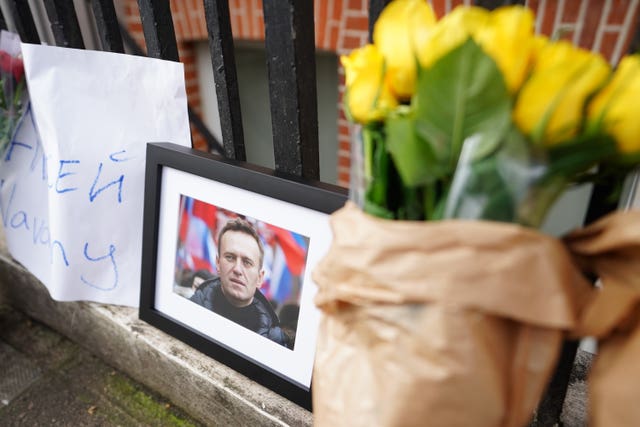Russian authorities put opposition leader Navalny’s widow on ‘extremists’ list
The ruling means that Ms Navalnaya would face arrest if and when she returns to Russia.

Russian authorities have put the widow of dead Russian opposition leader Alexei Navalny on a list of “terrorists and extremists”, continuing a sweeping Kremlin crackdown on the opposition.
Earlier this week, a Moscow court ordered the arrest of Yulia Navalnaya, who lives abroad, on charges of alleged involvement in an extremist group.
The ruling means that Ms Navalnaya would face arrest if and when she returns to Russia.
On Thursday, Russia’s Federal Service for Financial Monitoring followed up by adding Ms Navalnaya to its list of “terrorists and extremists”, a designation that implies restrictions on bank transactions that has been widely used against opposition members.
Mr Navalny, the fiercest political foe of Russian President Vladimir Putin, died in February in an Arctic penal colony while serving a 19-year sentence on extremism charges that he had condemned as politically motivated.
Authorities said he became ill after a walk but have otherwise given no details on Mr Navalny’s death.

Mr Navalny was imprisoned after returning to Moscow in January 2021 from Germany, where he had been recuperating from the 2020 nerve agent poisoning that he blamed on the Kremlin.
Ms Navalnaya has accused Mr Putin of her husband’s death and vowed to continue his activities. Russian officials have vehemently denied involvement in Mr Navalny’s poisoning and death.
Ms Navalnaya’s spokesperson Kira Yarmysh commented on the authorities’ latest move against her on social platform X, saying that “if they are so fussy it means that Yulia does everything right”.
Russian authorities have not specified the charges against Ms Navalnaya. They appear to relate to authorities designating Mr Navalny’s Foundation for Fighting Corruption and its regional offices as extremist.
A 2021 court ruling that outlawed Mr Navalny’s foundation and its regional offices has forced many of his close associates and team members to leave Russia while those who stayed have faced prosecution. Several lawyers who defended Mr Navalny and journalists who covered his activities also have been jailed on similar charges.
The Kremlin’s crackdown on opposition activists, independent journalists and government critics has intensified since Russia sent troops into Ukraine in February 2022.
Hundreds have faced criminal charges over protests and remarks condemning the war in Ukraine, and thousands have been fined or briefly jailed.





